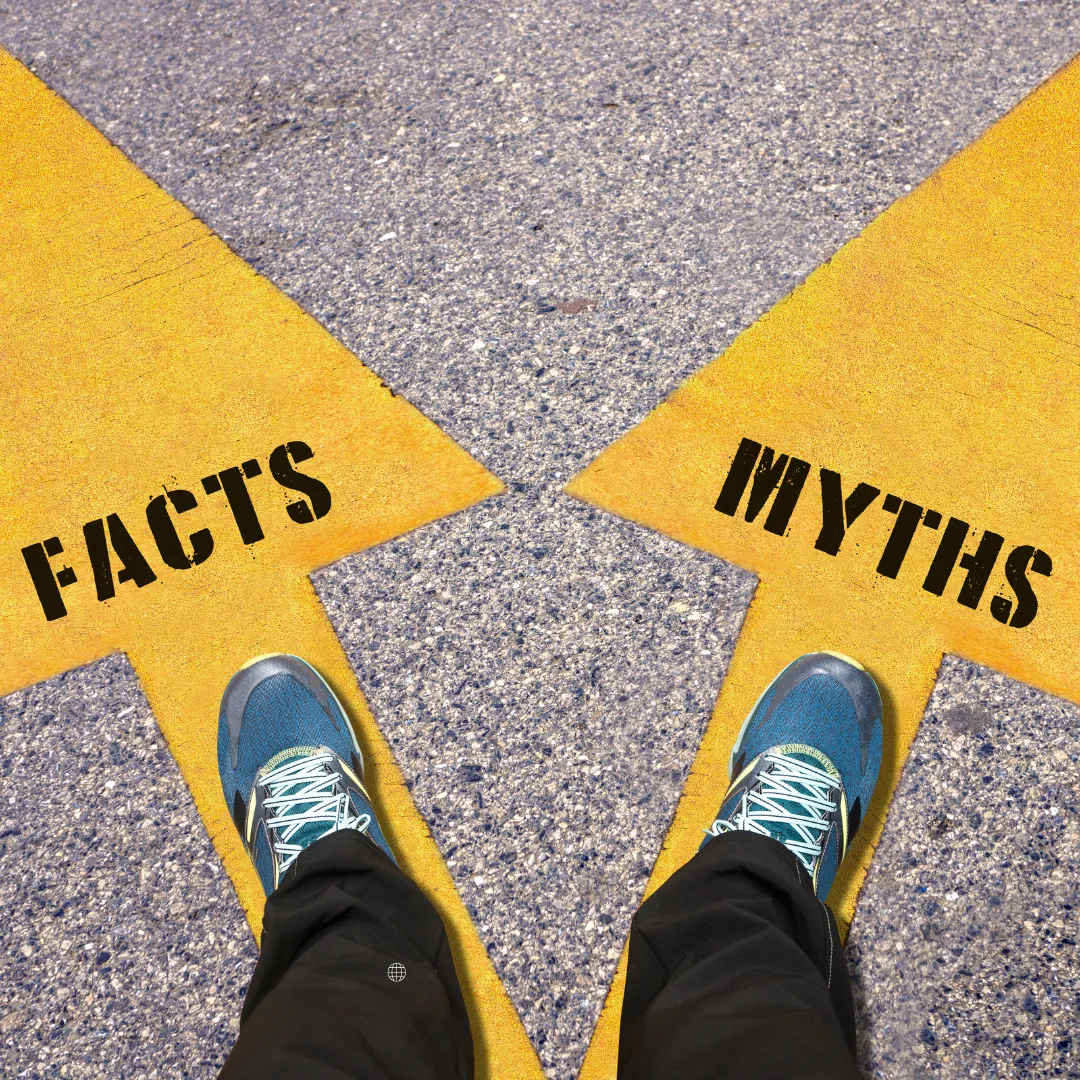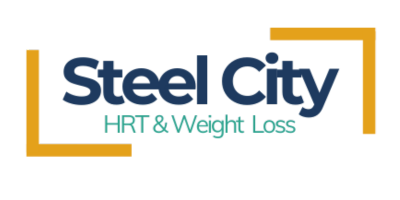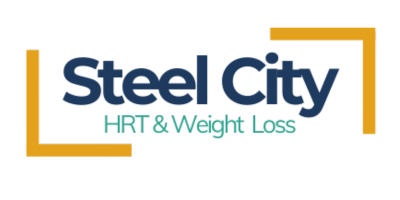
Busted! The Lie About Testosterone and Heart Attacks Finally Crumbles (What Doctors Aren’t Telling You!)
The Fear That's Holding You Back
You did everything right.
You finally took that bold step toward reclaiming your energy. Maybe you started Testosterone Replacement Therapy (TRT), or maybe you’re just now researching it. You’re tired of feeling like a shadow of your former self. The exhaustion, the mood swings, the extra weight that won’t budge. You want your life back.
But then...
"Doesn’t testosterone cause heart attacks?"
It’s the fear that stops thousands of men in their tracks. It’s the reason doctors hesitate. And it’s one of the biggest myths still circulating the internet, despite a growing mountain of evidence that says otherwise.
Here’s the truth: That fear is rooted in outdated, debunked science. In this article, we’ll walk you through what really happened, what new research is saying, and how testosterone therapy—when managed correctly—may actually help protect your heart.
Let’s break it down.
Where Did the Heart Attack Myth Begin? (And Why It Stuck)
Back in 2013, a study published in JAMA (Vigen et al.) set off alarms across the medical world. The researchers claimed that men on testosterone therapy had a significantly increased risk of heart attacks and strokes.
The media took that story and ran with it:
“TRT doubles heart risk!”
“Testosterone therapy might kill you!”
You get the idea.
But here’s what didn’t make headlines:
The study included men who never actually filled their testosterone prescriptions.
Many participants had serious pre-existing conditions.
The authors used a complex statistical model that was later publicly criticized and corrected by other researchers.
Still, the damage was done. That one study planted fear, and fear sticks.
The Truth About Testosterone and Cardiovascular Health
Thankfully, real science doesn’t stop at fear.
More recent, higher-quality research has stepped in to clean up the mess.
Let’s look at what we know now:
1. The Testosterone Trials (Snyder et al., 2016–2018)
This massive, multi-center study showed that TRT did not increase cardiovascular risk in older men. In fact, some groups experienced improvements in walking distance, bone density, and mood.
2. Wallis et al., 2016 – The Lancet Diabetes & Endocrinology
A meta-analysis of 40+ studies concluded that TRT does not increase heart attack risk in men without existing cardiovascular disease.
3. Baillargeon et al., 2014 – Annals of Pharmacotherapy
Looked at Medicare patients and found no increase in myocardial infarction (heart attack) risk among men taking testosterone.
"My doctor warned me early on about TRT and heart issues," recalls Jason, a 56-year-old patient. "But once I saw the newer studies and spoke with a specialist, it became clear. I started therapy 2 years ago, and not only do I feel younger, but my cardiologist is impressed with my numbers."
The science is evolving. And it’s clear: TRT isn’t the villain.
The Silent Danger of Low Testosterone on Your Heart
While the medical world panicked over hypothetical TRT risks, the real danger was hiding in plain sight: low testosterone itself.
Studies now show that men with untreated low testosterone are more likely to suffer from:
Obesity
Type 2 diabetes
High blood pressure
High cholesterol
Increased inflammation
And yes—a higher risk of heart attack.
A 2010 study published in Heart (Malkin et al.) found that men with low T had nearly double the risk of death from all causes compared to men with normal levels.
Another analysis by Corona et al., 2011 in the Journal of Sexual Medicine linked low testosterone to higher cardiovascular and all-cause mortality.
Here’s the bottom line:
Doing nothing is the real risk.
If you’re feeling the symptoms of low T—fatigue, brain fog, weight gain, loss of drive—you could already be heading down a path of declining heart health. TRT, under expert guidance, could be the course correction your body desperately needs.
What Doctors Aren’t Telling You About TRT (And Why)
Most general practitioners aren’t hormone specialists.
They mean well, but they don’t have the training or the time to keep up with evolving research. Plus, many still rely on outdated guidelines and are afraid of liability.
That’s why your best move is to work with a hormone therapy specialist who lives and breathes this science daily.
At Steel City HRT, our providers:
Use FDA-regulated, bioidentical hormones
Run comprehensive labs before, during, and after therapy
Monitor cardiovascular health markers (cholesterol, hematocrit, blood pressure, inflammatory markers)
Adjust dosages with precision and care
This isn’t about jabbing a needle and hoping for the best. It’s about crafting a personalized roadmap to long-term health.
How to Protect Your Heart While On TRT (It’s Easier Than You Think)
You don’t need to choose between vitality and safety. With the right provider and a few simple strategies, you can have both.
Here’s how we keep your heart healthy while optimizing testosterone:
Routine blood work: Monitor lipids, hematocrit, and inflammation every 8–12 weeks.
Use microdosing protocols: Smaller, more frequent injections = stable T levels = reduced risk.
Support with lifestyle changes: Nutrition, exercise, and sleep amplify the benefits of TRT.
Integrate weight loss support: GLP-1 medications, peptide therapies, and custom nutrition plans can lower heart strain while you drop fat and regain strength.
Stay hydrated: Dehydration can elevate hematocrit and strain the heart. Water is medicine.
Our team takes your full health picture into account. No shortcuts. No guesswork.
FAQ Schema
Does testosterone therapy cause heart attacks?
No. Recent studies like the Testosterone Trials and Wallis meta-analysis show no increased risk of heart attack when TRT is prescribed and monitored correctly.
Is low testosterone linked to heart disease?
Yes. Low testosterone is associated with obesity, diabetes, high blood pressure, and increased cardiovascular risk.
How can I stay safe on TRT?
Work with a hormone therapy specialist, get regular labs, follow a tailored treatment plan, and live a heart-healthy lifestyle.
What should I monitor while on TRT?
Key labs include hematocrit, lipids, inflammatory markers, blood pressure, and testosterone levels.
Is TRT safe for older men?
Yes, when managed correctly. The Testosterone Trials specifically studied men aged 65 and older and found no increased cardiovascular risk.
Be the Hero of Your Health Story
It’s not the therapy that should scare you—it’s the silence.
You’ve been made to believe that suffering is part of aging. That your energy, strength, and focus are gone for good. That feeling low is just "normal."
But normal doesn’t mean acceptable.
TRT, done right, isn’t risky. It’s revolutionary.
Like hundreds of men before you, you can go from drained to driven. From foggy to focused. From flat to fully alive.
You just need the right guide.
Final Call-to-Action: Take Control. Reclaim Your Health.
📞 Call 719-669-4223 or visit our website to schedule your personalized consultation.
No hidden risks.
No cookie-cutter medicine.
Just expert care designed around YOU.
Don’t let fear win. Let science and strength lead the way.
Your heart’s not in danger.
It’s ready for a comeback.
References:
Baillargeon, J., Urban, R. J., Kuo, Y.-F., Ottenbacher, K. J., Raji, M. A., Du, F., & Goodwin, J. S. (2014). Risk of myocardial infarction in older men receiving testosterone therapy. Annals of Pharmacotherapy, 48(9), 1138–1144. https://doi.org/10.1177/1060028014539918
Corona, G., Monami, M., Rastrelli, G., Aversa, A., Sforza, A., Lenzi, A., Forti, G., & Mannucci, E. (2011). Testosterone and cardiovascular risk: Meta-analysis of interventional studies. The Journal of Sexual Medicine, 8(11), 3158–3170. https://doi.org/10.1111/j.1743-6109.2011.02564.x
Endocrine Society. (2018). Testosterone therapy in men with hypogonadism: An Endocrine Society clinical practice guideline. https://www.endocrine.org
Malkin, C. J., Pugh, P. J., Morris, P. D., Asif, S., Jones, T. H., & Channer, K. S. (2010). Low serum testosterone and increased mortality in men with coronary heart disease. Heart, 96(22), 1821–1825. https://doi.org/10.1136/hrt.2010.201970
Snyder, P. J., Bhasin, S., Cunningham, G. R., Matsumoto, A. M., Stephens-Shields, A. J., Cauley, J. A., Gill, T. M., Barrett-Connor, E., Swerdloff, R. S., Wang, C., Ensrud, K. E., Lewis, C. E., Farrar, J. T., & Ellenberg, S. S. (2016). Effects of testosterone treatment in older men. The New England Journal of Medicine, 374(7), 611–624. https://doi.org/10.1056/NEJMoa1506119
Snyder, P. J., Ellenberg, S. S., Cunningham, G. R., Matsumoto, A. M., Swerdloff, R. S., & Bhasin, S. (2018). The Testosterone Trials: Seven coordinated trials of testosterone treatment in elderly men. Clinical Trials, 15(5), 432–445. https://doi.org/10.1177/1740774518775222
Vigen, R., O’Donnell, C. I., Barón, A. E., Grunwald, G. K., Maddox, T. M., Bradley, S. M., ... & Ho, P. M. (2013). Association of testosterone therapy with mortality, myocardial infarction, and stroke in men with low testosterone levels. JAMA, 310(17), 1829–1836. https://doi.org/10.1001/jama.2013.280386
Wallis, C. J. D., Lo, K., Lee, Y., Krakowsky, Y., Garbens, A., Satkunasivam, R., ... & Nam, R. K. (2016). Testosterone therapy and cardiovascular risk: A systematic review and meta-analysis. The Lancet Diabetes & Endocrinology, 4(11), 943–956. https://doi.org/10.1016/S2213-8587(16)30215-6
American Urological Association. (2018). Evaluation and management of testosterone deficiency: AUA guideline. https://www.auanet.org




Facebook
Instagram
LinkedIn
Youtube
TikTok
Pinterest